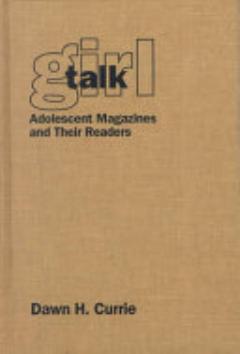Current feminist debate finds itself at an impasse concerning the significance of magazines for adolescent girls- are they full of oppressive prescriptions of femininity, or celebrations of female-centred pleasure and resistance against the patriarchy? The question has been examined largely by middle-aged academics, in some cases far removed in age and education from the intended consumers of these magazines, and the assumptions they have reached about the messages absorbed by young women may be completely wrong.
Dawn Currie takes a new approach, by looking at the readers themselves and how they interpret the message of the magazines in their everyday lives. Based on interviews with 48 girls aged 13 to 17, this book challenges many assumptions that have arisen through researchers making their own interpretations, such as the supposed appeal of glossy photo spreads and advertisements. In Currie's study, we find that girls prefer written texts, particularly advice columns, because they view them as useful for everyday living, particularly within the school culture, which Currie finds reinforces the message of the 'teenzines' by encouraging girls to doubt themselves rather than to question the cultural constructs that surround them. Using intertextuality as a reading strategy for materialist feminism, Dawn Currie distinguishes between the 'social' and the 'cultural' and allows us to better understand how power as a quality of social relationships works through the cultural media of fashion and beauty magazines.

